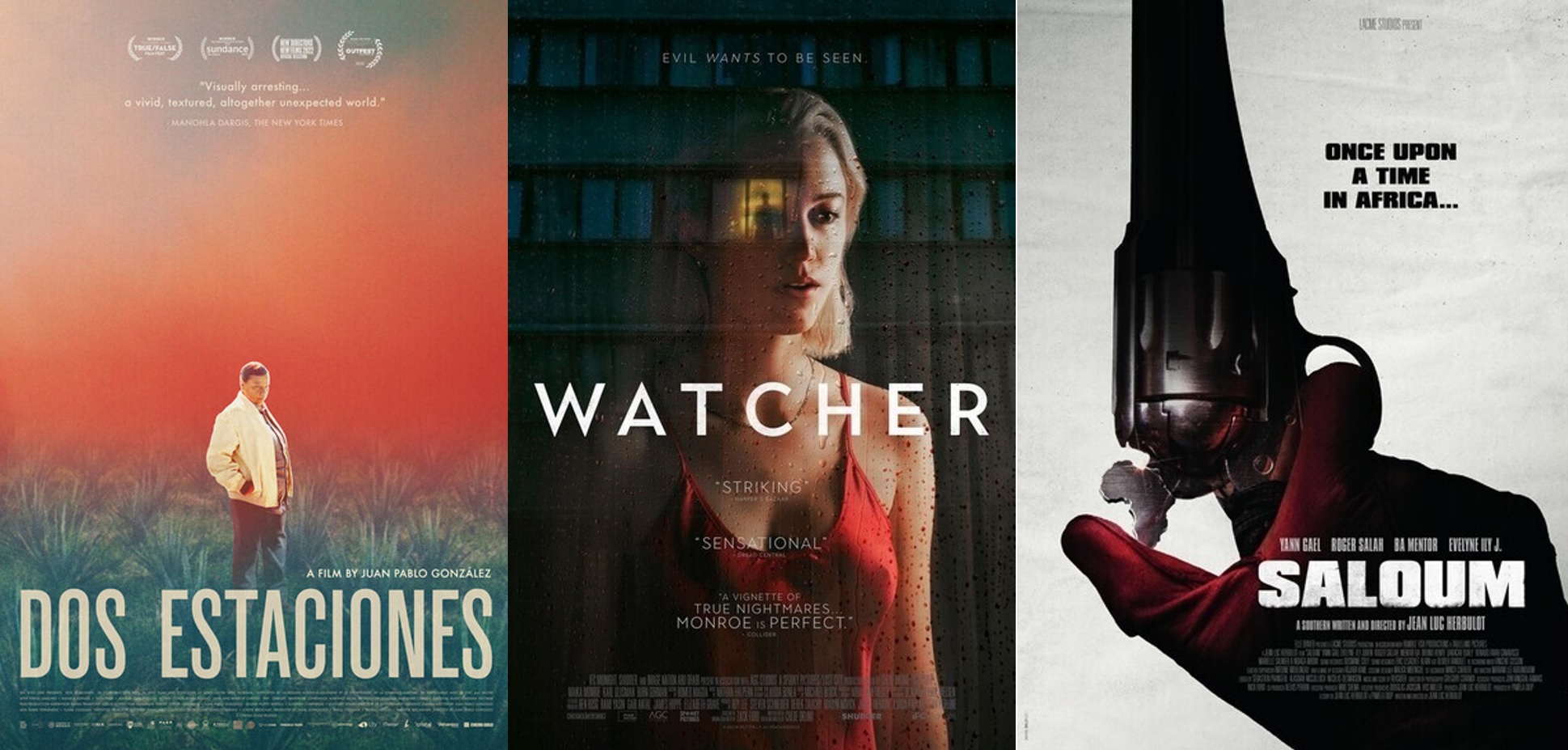We asked ten contributors to pick three films from 2022 that they think everyone should see before making their top ten lists of the year. These are the choices of Isaac Feldberg.
At this point in the year, it can be challenging for those mulling over their end-of-year lists to attend to the wealth of prestige titles arriving in theaters and simultaneously cast their gaze backward, to consider smaller, lesser-seen movies that might have slipped through the cracks. It’s in the spirit of guiding readers to titles in the latter category—outside the purview of superhero movies, summer blockbusters, and star-studded Oscar frontrunners—that I’ve selected a few films, released this year, that deserve to find a broader audience.
Of course, there are many, many others. “Strawberry Mansion,” by the duo of Kentucker Audley and Albert Binney, is beguilingly romantic in how its analog aesthetics capture the surreally unmoored possibilities of dreams, their handmade qualities a ready antidote to soulless commercial fantasy. Mariama Diallo’s feverishly unsettled “Master,” in which Black women (such as a transfixing Regina Hall) struggle to survive the warped realities of an Ivy League campus, was among the strongest horror feature debuts I saw this year. And Antoneta Alamat Kusijanović’s “Murina,” a slow-gathering psychodrama set along Croatia’s sun-soaked Dalmatian coast, brought thrilling potency to the phrase “trouble in paradise” with its tale of a 17-year-old (Gracija Filipovic, sensational) straining to escape an abusive family dynamic.
After all, 2022 was an embarrassment of riches, if you knew where to look. The three films highlighted in this feature were among the very best screened by this critic that—whether due to limited theatrical runs, the rising tide of streaming services, or good-old-fashioned bad luck—may have passed our readers by.

At once intimate and expansive, writer/director Juan Pablo González’s Mexican drama “Dos Estaciones” is set in Jalisco’s rolling highlands, where the owner of a once-thriving tequila manufacturing plant struggles to address crises both immediate and existential. A disease is affecting the local agave supply, and steady intrusion by foreign competitors exacerbates the factory’s financial woes. A respected and formidable presence in the small town of Atotonilco El Alto, María García (Teresa Sánchez, who won a special jury prize at Sundance for her riveting, iron-rich performance) toils to save the distillery, once owned by her father. In hopes of turning things around, she hires Rafaela (Rafaela Fuentes, one of several non-professional actors in the cast), a local woman recently laid off from a managerial position at another tequila factory, and comes to value her on levels beyond the professional.
Reserved yet resilient in the face of potential failure, María keeps her emotions in check. Known for his documentarian and cinematographic practice, González honors the extent of her endurance through his patient, keen-eyed attention to her daily routines and, within them, to the labor-intensive craft behind each artisanal bottle of tequila. Opening in blue agave fields where workers harvest the plant’s piña, or heart, and moving its gaze inward to capture each site of this painstaking process—ovens where the piñas are baked, conveyor belts they’re handled along, casks where they’re aged—“Dos Estaciones” observes the ritual of a community’s collective work, its efforts to remain rooted in the vivid landscape that sustains its most closely held artistic tradition and source of regional pride. Sensing threats to this way of life, and her own, María carries the burdens of influence, legacy, and impending loss upon her shoulders; Sánchez bears it all with a solemn, diligent grace and contemplative power that amplifies the film’s own. On VOD

“Saloum”
In this year’s most explosively stylized opening sequence, “Saloum” plunges audiences into a coup in Guinea-Bissau circa 2003, so as to introduce the mercenaries at its center in the heat of the action, where they and Congolese director Jean Luc Herbulot both excel. Moving in deadly lockstep, to a violently propulsive score by Reksider, the Bangui Hyenas—leader Chaka (Yann Gael), second-in-command Rafa (Roger Sallah), and group mystic Minuit (Mentor Ba)—surge through a city block and extract a drug dealer, along with his gold bullion. “Guns for hire, live by fire,” says an unseen narrator of the Hyenas, whose larger-than-life exploits have become part of the regional folklore; shot in eye-popping widescreen, the film’s compositions are visually dense and breathlessly paced, as if heralding a legend mid-motion.
Their getaway plane leaking fuel, Chaka directs Rafa toward Senegal, where a reckoning awaits the gunslingers at a compound in the Sine-Saloum region. That compound’s proprietor (Omar Henry) is familiar to Chaka, but it isn’t until the characters sit down to dinner—meeting a deaf, mute woman (Evelyne Ily Juhen), who spars with the Hyenas in sign language, a film highlight—that “Saloum” reveals a fiercely political battle of wills raging beneath the pleasantries. One visceral pleasure of “Saloum” lies in its devil-may-care pivots in genre and tone, skillfully scripted by Herbulot and Pamela Diop. Billed as a “Southern,” their film articulates a Senegalese answer to Western mythologies of revenge, resource exploitation, and cycles of violence; fans of Akira Kurosawa, Sergio Leone, Kim Jee-woon, and John Carpenter will find plenty by way of homage, but “Saloum” is propelled by an exuberant perspective all its own. Streaming on Shudder

“Watcher”
The destabilizing sensation of being looked at has served as the basis for many exemplary psychological thrillers, and writer/director Chloe Okuno’s feature debut is engaged in a pointed dialogue with several—especially voyeurism classic “Rear Window”—even as it sharpens its focus for modern audiences by centering the object of a voyeur’s gaze who decides, in a fateful moment of defiance, to look back. Once pursued by another unknown entity in “It Follows,” Maika Monroe holds the screen as Julia, who’s newly relocated to Bucharest and convinced a silhouetted figure across the street is watching her through her apartment’s massive windows. That a serial killer is slaughtering women around the city only heightens her paranoia, but Julia’s husband (Karl Glusman) can hardly mask his skepticism, even after Julia senses a strange man stalking her in the streets as well.
Drawing an unsettled, otherworldly dread out of its European setting (reminiscent of Andrzej Zulawski’s “Possession”) and weaponizing sound design so as to trap the audience inside Julia’s turbulent headspace, “Watcher” also recalls Roman Polanski’s “Repulsion” and “Rosemary’s Baby.” Still, it registers most as a fresh take on female anxiety, elevated by Okuno’s uncanny ability to build suspense and trigger sudden emotional responses through sly manipulations of shadow and space. Terribly conscious of her physical vulnerability but radiating as well an inner strength, Monroe makes it easy to believe in Julia’s fear and uncertainty, right up until Okuno’s brilliantly crafted finale provides a catch and release for all the horrors swirling unseen beneath her thriller’s chilly, reflective surfaces. Streaming on Shudder












